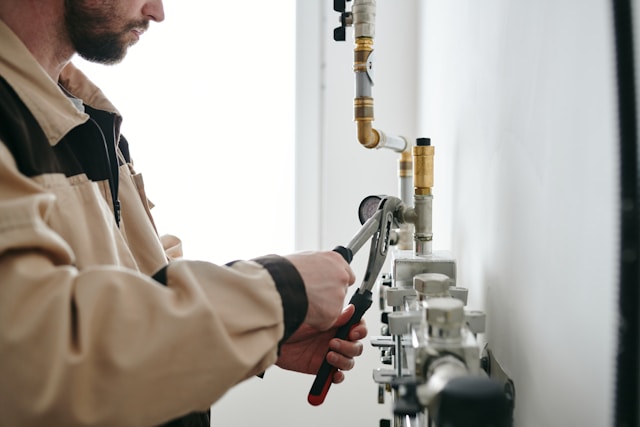Water conservation is not only beneficial for the environment but also helps reduce utility bills. Smarter plumbing solutions can make a significant difference in minimizing water waste while maintaining efficiency. Here’s how you can upgrade your plumbing system and adopt water-saving practices.
1. Install Dual-Flush Toilets
Why It’s Effective:
Dual-flush toilets allow you to use less water for liquid waste and a full flush for solid waste, saving gallons of water daily.
How to Implement:
- Replace older toilets with dual-flush models.
- For a budget-friendly option, install a dual-flush conversion kit on your existing toilet.
2. Upgrade to Low-Flow Fixtures
Why It’s Effective:
Low-flow faucets and showerheads reduce water usage without compromising pressure.
How to Implement:
- Look for WaterSense-labeled fixtures, which use up to 20% less water.
- Install aerators on faucets to maintain water pressure while limiting flow.
3. Fix Leaks Immediately
Why It’s Effective:
Even a small leak can waste thousands of gallons of water annually.
How to Implement:
- Inspect your plumbing regularly for dripping faucets, running toilets, and pipe leaks.
- Repair or replace faulty components promptly.
4. Use Smart Irrigation Systems
Why It’s Effective:
Traditional sprinklers often overwater lawns, wasting significant amounts of water.
How to Implement:
- Install a smart irrigation system that adjusts watering based on weather and soil conditions.
- Water your lawn during early morning or late evening to reduce evaporation.
5. Opt for Tankless Water Heaters
Why It’s Effective:
Tankless water heaters provide hot water on demand, eliminating the need to keep a large tank heated continuously.
How to Implement:
- Upgrade to an energy-efficient tankless water heater.
- Consider point-of-use systems for areas with high hot water demand.
6. Reuse Greywater
Why It’s Effective:
Greywater systems reuse water from sinks, showers, and washing machines for non-drinking purposes.
How to Implement:
- Install a greywater recycling system for irrigation or toilet flushing.
- Ensure the system complies with local regulations.
7. Harvest Rainwater
Why It’s Effective:
Rainwater harvesting systems provide a free, sustainable water source for outdoor use.
How to Implement:
- Set up rain barrels or larger collection systems to capture roof runoff.
- Use the collected water for gardening, car washing, or cleaning outdoor areas.
8. Insulate Pipes
Why It’s Effective:
Insulated pipes reduce the time it takes for hot water to reach your faucet, saving water wasted while waiting.
How to Implement:
- Wrap pipes with foam insulation, especially in unheated areas like basements and crawl spaces.
9. Educate Your Household
Why It’s Effective:
Changing habits can significantly reduce water waste.
How to Implement:
- Encourage family members to turn off the tap while brushing teeth or washing dishes.
- Promote shorter showers and running dishwashers or washing machines only with full loads.
10. Conduct Regular Plumbing Inspections
Why It’s Effective:
Routine checks help identify inefficiencies and areas for improvement.
How to Implement:
- Hire a licensed plumber to inspect your system annually.
- Focus on aging fixtures, hidden leaks, and outdated appliances.
Conclusion
Adopting smarter plumbing solutions is a simple yet impactful way to conserve water and reduce utility costs. By upgrading fixtures, repairing leaks, and rethinking your water usage habits, you can create a more efficient and eco-friendly home.
For larger upgrades or installations, consult a professional plumber to ensure everything is done correctly and in compliance with local codes. Small changes today can lead to significant savings and environmental benefits over time.
